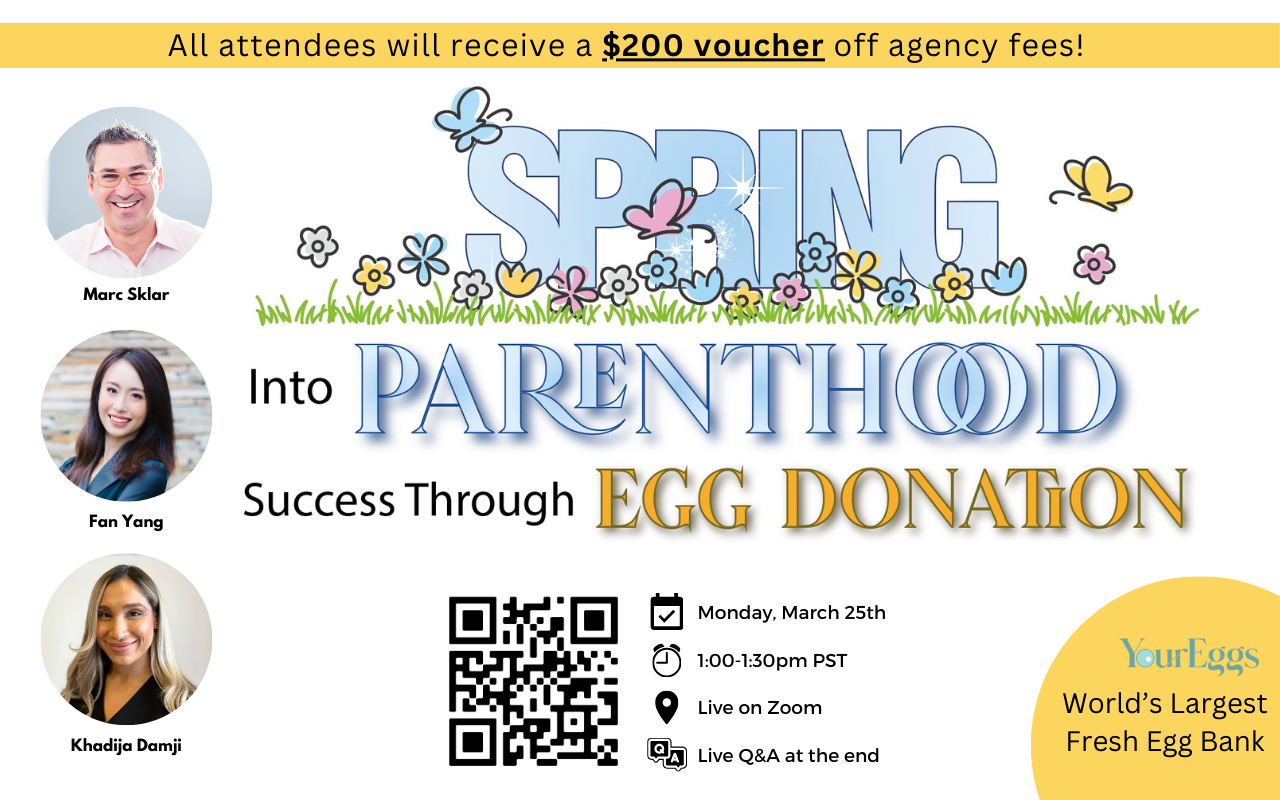

FAQs


Find out if you qualify by answering a short questionnaire:
The requirements to become an egg donor:
- Age: 19 to 29, this range typically indicates better egg quality and health.
- Health Status: Donors should be in good physical and mental health.
- BMI: A body mass index (BMI) within a range (typically 19-30).
- Family Health History: A family health history to screen for genetic issues..
- Lifestyle Factors: Healthy lifestyles, non-smokers and no drugs or alcohol issues.
- Psychological Assessment: Psychological evaluation to ensure mental health.
- Commitment to the Process: A commitment to medical appointments, hormone treatments, and the egg retrieval procedure.
Becoming an egg donor can be a rewarding experience for many reasons.
- Helping Others:One of the most fulfilling aspects is the opportunity to help individuals or couples achieve their dreams of parenthood.
- Financial Compensation: Egg donors receive compensation for their time and effort, which can be a significant financial benefit.
- Personal Growth: The experience can be empowering, providing a sense of purpose and fulfillment.
- Health Benefits:Donors receive a comprehensive health screenings, which can help you gain insights into your own reproductive health.
- Flexible Options:You often choose between anonymous and known donation, you have control over how much involvement you want.
- Increased Awareness: The process can increase your awareness of fertility issues and reproductive health.
- Future Connection: If you choose to be an open donor, there may be opportunities to form meaningful connections with families you help.
- Legacy: Knowing that a part of you may help create new life can be a profound and lasting legacy.


Is there contact with the parents after egg donation?
Contact with parents after egg donation varies depending on the arrangements made prior to the donation. Generally, there are two types of egg donation:
1. Anonymous Donation: In this case, there is no contact between the donor and the recipients. The donor’s identity is kept confidential.
2. Known Donation: If the donor knows the intended parents, they may have some level of communication or contact, depending on the agreement made between both parties.
Many fertility clinics also have policies regarding communication and contact, so it’s important for both donors and recipients to discuss their preferences and expectations beforehand.


How does compensation work when donating your eggs?
1. Amount: Donors can receive compensation ranging from a few thousand to several thousand dollars per cycle, often averaging between $5,000 and $10,000.
2. Payment Structure: Compensation may be provided after the egg retrieval procedure is completed. Some clinics may offer an initial payment upon signing the donor agreement.
3. Additional Compensation: Some donors may receive additional payment for any expenses incurred during the process, such as travel or medical costs.


How many times can I donate?


How Long does an egg retrieval take?


What are the requirements for becoming an egg donor?
The requirements for becoming an egg donor typically include:
1. Age: Donors are usually between 18 and 34 years old, as younger eggs tend to have higher quality.
2. Health: Donors should be in good physical and mental health, with no significant medical conditions or genetic disorders.
3. BMI: Many clinics have guidelines regarding body mass index (BMI), often requiring it to be within a healthy range.
4. Non-Smoker: Donors should not smoke or use recreational drugs.
5. Family Health History: A detailed medical history, including family health history, is usually required to screen for hereditary conditions.
6. Commitment: Donors must be committed to the process, including attending appointments and undergoing medical evaluations.
7. Psychological Evaluation: Some clinics require a psychological assessment to ensure the donor understands the process and implications.
8. Legal Requirements: Donors must comply with legal agreements and may need to undergo screening for infectious diseases.
Each fertility clinic may have its own specific criteria, so it’s important to check with your agency for their particular requirements.


Can I donate my eggs if I live outside the US?


How do I become an egg donor?
That’s easy; just go to www.youreggs.com and click on the link to become an egg donor. You will be asked to fill out a short questionnaire that will work as your prescreening.


Can you still have a baby if you donate your eggs?
pregnancies after donating. However, it’s important to discuss any concerns with a healthcare provider to understand the process and any potential impacts on future fertility.



